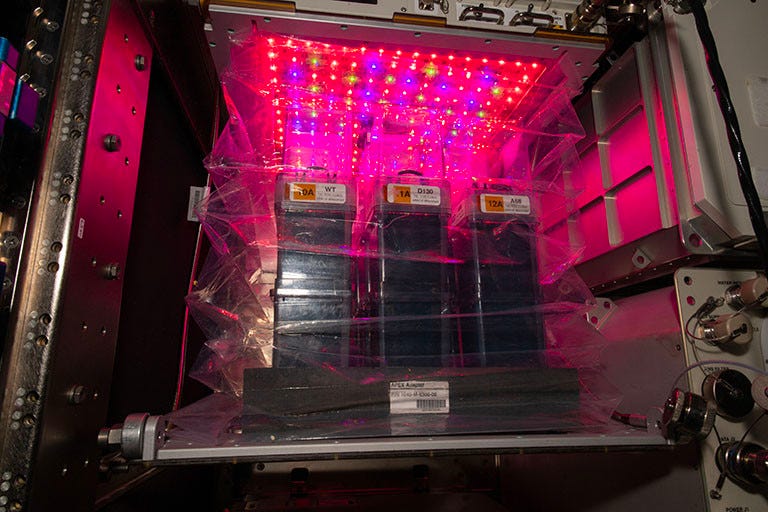Cotton Research Conducted Aboard ISS
Searching for Genetic Clues that Could Result in Greater Resiliency
Cotton is one of the world's most vital agricultural commodities, used in products from clothes to coffee filters. It's also a resource-draining plant that farmers struggle to grow sustainably. The search for genetic clues that could produce resilient cotton plants that use resources more efficiently yielded new results when a …




